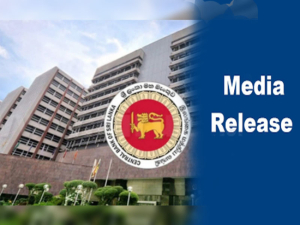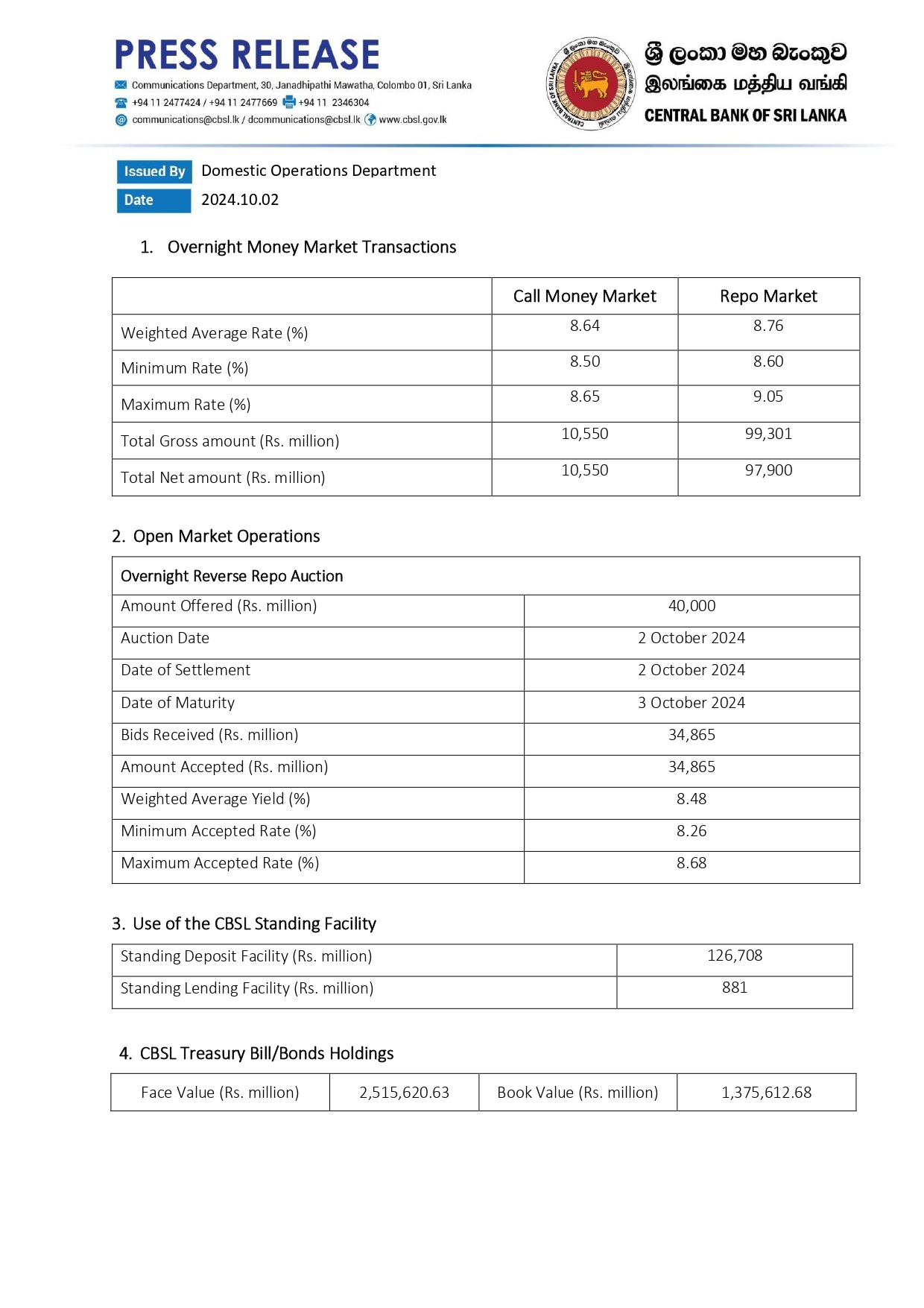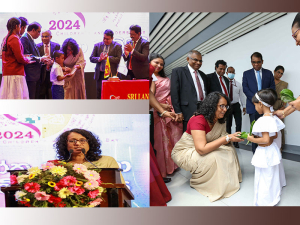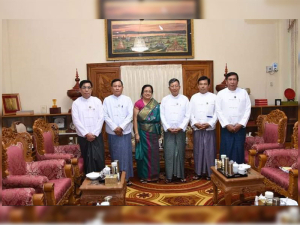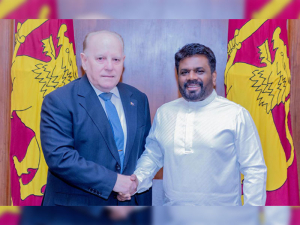Devika
The government’s vision: the best for all children - Prime Minister
October 03, 2024Restoring confidence in education is necessary
Policies to protect children from preschool to higher education
Creating an environment for senior citizens to live independently and happily
Collective action needed to address social crises rather than individual attempts
Prime Minister Dr. Harini Amarasuriya stated that the aim of the present government is to provide the best for all the children of the country based on the concept that “the best things are for children.”
The Prime Minister made these comments while participating in the national ceremony for World Children and Elder’s Day held at the Suhurupaya Auditorium, Battaramulla, yesterday (01)
The theme of this year’s World Children’s and Elder’s Day is "Let’s extend our hands of love... and protect adult and child generations."
Prime Minister Dr. Harini Amarasuriya emphasized that the current government is committed to providing education and is formulating policies to protect the education of children from preschool to higher education.
The Prime Minister further commented:
"Today we celebrate two extremely important groups in our society. Children are our future. Senior citizens are the generation that shaped our present and created our future. Today is a day to honor and appreciate both of these groups. If we look at any country to assess its civilization and development, one of the most important criteria is how well children and senior citizens are treated in that society.
Especially as communities deserving of protection, care, and love, it is crucial how our children and senior citizens are treated. This treatment reflects how developed, humane, and civilized that country is. We must all accept this reality.
We still have a lot of work to do as a country and as a society. Our children have become the main victims, especially of the economic and political crises that have occurred in recent years. They have been affected most by today’s competitive and oppressive society. Social crises have arisen due to the breakdown of social relations, as well as the loss of trust in each other and in institutions. The weakening credibility of political leaders and public institutions, as well as the non-governmental and private institutions meant to serve them, has led to a harmful distrust among the general public.
If a society is to develop and become strong, the most crucial factor is the trust we have in one another. When trust in institutions and political leadership weakens, significant social crises will inevitably arise. The primary issue we need to address is this social crisis. Instead of facing these problems alone, we can collectively seek answers and solutions. Adopting this attitude will enable us to develop as a country. However, our country is currently not in such a situation. We are all isolated, with each person attempting to find individual solutions to their problems. We live in a society that imposes significant pressure on ourselves, compelling us to fight our battles alone. We believe that this idea should change.
For societal development to foster the well-being of our citizens, there must be a strong social system in place. The social institutions—be they family, education, health, social security, or law and order—must be fortified. The society must perceive these institutions as serving the people and offering reliable services. However, as we observe today, such a situation does not exist in our society.
We are not solely responsible for this situation as individuals, nor is it due to the failure of one officer, teacher, or parent. This is a social crisis. Therefore, we must transcend our individual attempts to solve our problems and understand the broader social crisis we face, and how we should collectively intervene. This discussion is essential for our society at this time. Strengthening our social, economic, political, and institutional systems is imperative to address these social crises.
Our government has conveyed a very clear message to the people of this country and the world through the victory we achieved in the presidential election: change is needed. This difference is not merely personal.
The people of our country currently hope for systemic change that can make a difference in our evolving society. We understand that the entire society seeks transformation to build a healthier, kinder, and more cohesive community, one that goes beyond short-term gains and temporary fixes. Thus, our government’s involvement is not limited to superficial issues. We aim to implement short-term, medium-term, and long-term solutions to the socio-economic and political crises in our society in a planned and structured manner.
We believe that all children deserve the best—not just a select few. We must create a society where every child can believe they can live happily in this country, nurture their hopes, and realize their aspirations. That is why we are striving to intervene and implement policies.
Our senior citizens are currently facing numerous challenges. The loss of economic capability has rendered many dependent, which is unacceptable. We are working to foster a society where senior citizens can lead independent and fulfilling lives while maintaining their dignity and respect.
Particularly concerning our children, we face many educational crises today. When societal trust collapses, so too does trust in education. This is an extremely dangerous situation; when there is no confidence in education, families perceive the school system as a burden, and children feel education is a weighty obligation. This situation is grave.
Therefore, our government has decided to prioritize education. We need an educational system that safeguards children from preschool through higher education and ensures justice for all. We believe that meaningful changes and transformations will gradually be possible in the educational system and across all areas of health and law and order. We are committed to that vision.
I would like to address the recent controversy surrounding the grade 5 scholarship exam. We understand the concerns very well. This crisis reflects the broader issues in our society. In this competitive educational landscape, parents feel immense pressure, fearing their chances of providing the best education for their children are slipping away. We can empathize with the intensity of parental involvement in the scholarship exam. Every parent strives for the best for their children. When a child does not receive the best, it results in difficult circumstances.
It is not the fault of parents, principals, or teachers. This issue stems from the long-standing weaknesses in educational policies and the government’s negligence toward education. We understand that we cannot resolve this overnight. However, with the President’s intervention, we are actively working to find the best solutions that all children deserve, ensuring a fair outcome and the best interest of the child.
We aim to alleviate any pressure on children and ensure that every child receives equitable treatment through discussions with relevant experts who understand the needs of children. We are collaborating closely with the Ministry of Education and the Department of Examinations to implement necessary measures to prevent similar issues from arising in the future. We are also in discussions with law enforcement to investigate this incident and hold those responsible accountable.
In our view, no child should ever experience pressure through examinations, nor should uncertainty be created. This is unacceptable. We recognize the injustice caused to parents, which is why we all must work together to find the best solution that protects children’s well-being and ensures justice for all.
We have already taken several steps in this regard. Until further information is obtained, the marking of the grade 5 scholarship exam has been temporarily suspended. As a government, we prioritize the mental health of children and their best interests. We are committed to pursuing necessary reforms and transformations in the education sector, ensuring the best interests of children are at the forefront.
At this crucial moment, we have an opportunity to accurately identify many long-standing problems that have received little attention and to find systematic and sustainable solutions. We believe every problem has a solution; no problem exists without a remedy. We see it as our responsibility to discover those solutions while ensuring that other parties are not inconvenienced or treated unfairly.
For this reason, I urge everyone to think about the long-term program for building this country while patiently confronting the immediate challenges that arise from a society that has been in decline for so long. I ask you all to engage with understanding the mental well-being of children and the challenges they face.
Once again, I wish you all the best. I would especially like to thank our secretary and the ministry staff for organizing this event with great enthusiasm. By incorporating my ideas and adjusting them as necessary, we have collectively achieved this work.
Looking ahead, I know we have much work to do, and I look forward to your support.
I also want to extend my heartfelt gratitude to our senior citizens; you are a great strength to us. We recognize your contributions in sustaining our society. We understand you have not always received the best treatment, but we are committed to changing that. You are a valuable resource, and we must safeguard that resource. We have much to learn from you, and we need to create an environment where you can continue contributing to society.
Thank you all very much for your participation. Let’s work together to build a country where all of us can live happily.
The launching of the National Policy on Child Day Care Facilities, the awarding of certificates to winners of an art competition, and the 12 winners of the "Save the Child in the Digital World" short video competition were held under the patronage of the Prime Minister.
A commemorative stamp for Children’s Day and a first-day cover were also issued during this occasion.
The event was attended by Secretary to the Prime Minister Pradeep Saputhanthri, Secretary to the Ministry of Women, Child and Youth Affairs and Sports K. Mahesan, Secretary to the Ministry of Buddhasasana, Religious and Cultural Affairs, National Integration, and Media Ranjith Ariyaratne, along with many government officials.
Ambassador of Sri Lanka to Myanmar Prabashini Ponnamperuma attended three separate meetings with Myanmar Union Minister for Hotels and Tourism Dr. Thet Thet Khine, Union Minister for Religious Affairs and Culture U Tin Oo Lwin, and Union Minister for Science and Technology Dr. Myo Thein Kyaw, in Nay Pyi Taw recently.
The Cuban Ambassador meets the President
October 02, 2024Agrees to provide expert knowledge for dengue control

